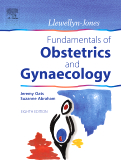1. Gynaecological and obstetric history and examination
2. Ovulation and the menstrual cycle
3. Conception and placental development
4. Embryo and fetus
5. Physiological and anatomical changes in pregnancy
6. Antenatal care
7. Physiology and anatomical changes in childbirth
8. Course and management of childbirth
9. The puerperium
10. Minor complications of pregnancy
11. Abortion
12. Extrauterine pregnancy/ectopic gestation
13. Antepartum haemorrhage
14. Hypertensive diseases in pregnancy
15. Cardiovascular, respiratory, haematological and neurological disorders in
pregnancy
16. Endocrine disorders in pregnancy
17. Infections during pregnancy
18. Diseases of the placenta and membranes
19. Variations in the duration of pregnancy
20. The at-risk fetus
21. Abnormal fetal presentations
22. Abnormal labour (dystocia) and prolonged labour
23. Disorders in the puerperium
24. Obstetric operations
25. The epidemiology of obstetrics
26. The newborn infant
27. The low-birthweight infant
28. Disorders of menstruation
29. Psychological and physical disorders of the menstrual cycle
30. Human sexuality
31. Conception control
32. Infertility
33. Infections of the genital tract
34. Atrophic and dystrophic conditions
35. Endometriosis and adenomyosis
36. Benign tumours, cysts and malformations of the genital tract
37. Premalignant and malignant conditions of the female genital tract
38. Uterovaginal displacements, damage and prolapse
39. The urinary tract and its relationship to gynaecology
40. The breast
41. Gynaecological problems in childhood and adolescence
42. A woman's middle years: menopause
43. Anatomy of the female genital tract
Author Information
By Jeremy K. Oats, Honorary Consultant in Genitourinary Medicine, Addenbrooke's
Hospital, Cambridge, and Westminster Hospital, London, UK; and Suzanne Abraham


